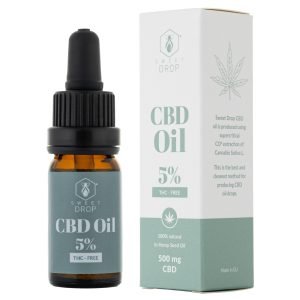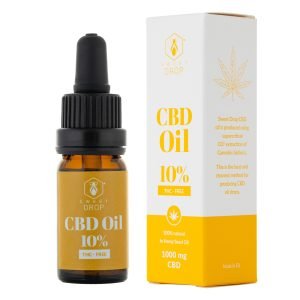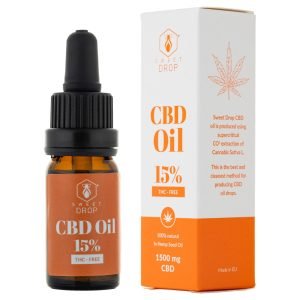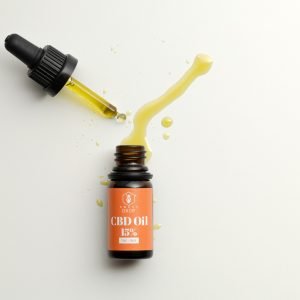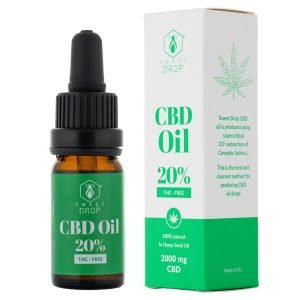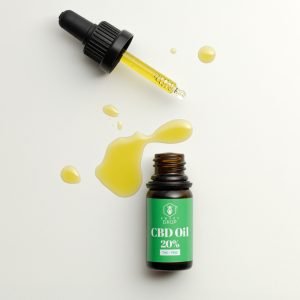There is growing interest in using compounds from the Cannabis sativa plant, particularly for treating mental health disorders, as current treatments are often ineffective. Studies on the main phytocannabinoids, THC and CBD, show promising results. Early clinical trials suggest that CBD can reduce anxiety, psychosis, and depression with a favorable risk-benefit profile. These findings support further large-scale studies to evaluate CBD as a new treatment for psychiatric disorders. Unlike THC, CBD does not have abuse potential.
Mental health is a major global public health challenge, affecting about one in four people at some point in their lives. Mental health issues account for 19.5% of the global disease burden and cause 35% to 45% of work absenteeism in many countries. They are also linked to human rights violations, discrimination, and stigma.
This review focuses on the effects of CBD on anxiety, depression, and post-traumatic stress disorder in both animal and human studies. In 2018, the U.S. FDA approved CBD for treating seizures in children with Lennox-Gastaut syndrome or Dravet syndrome, which has spurred research into its use for other conditions.
Studies with animals
Since the late 1970s, scientists have studied CBD’s potential to reduce anxiety and depression in animals. Initial results were mixed, but later studies showed that CBD could reduce anxiety at moderate doses, but not at low or high doses. CBD also helped lessen stress responses, such as heart rate and anxiety, activating specific serotonin receptors, aside from other processes.
Studies have shown that the strain of animals and how CBD is given (once or repeatedly) can affect its impact. In some animals, like male mice and hypertensive rats, CBD didn’t have any effect. Long-term CBD treatment reduced anxiety, but a single dose did not.
Anxiety and fear
When CBD was directly injected into specific brain areas, it reduced anxiety and panic-like responses, had calming effects. Injections into other brain regions blocked stress-related responses. These effects are linked to specific serotonin receptors.
In studies involving fear reactions (when animals associated a specific context with fear), a single dose of CBD reduced fear and anxiety behaviors. However, long-term CBD use had the opposite effect, increasing these behaviors. Injecting CBD into certain brain areas also reduced fear and anxiety, but it gave mixed results: sometimes increasing fear and other times helping to eliminate it, depending on the number of injections. CBD appears to interfere with the formation of bad memories by affecting various receptors over time.
Depressive behaviour
CBD has also shown promise as an antidepressant in animal studies. It had an antidepressant effect when given alone or with low doses of other antidepressants, mainly by activating serotonin receptors. Importantly, a single dose of CBD had a quick and lasting antidepressant effect, lasting up to a week in mice. Similar results were found in different rat strains. Additionally, CBD had an antidepressant effect, preventing stress-related changes in DNA in the brain.
Animal models have shown that cannabidiol (CBD) has properties that reduce anxiety, fear and depressive symptoms. This suggests that CBD could be used to treat various psychiatric, neurological, and substance use disorders.
Human studies
In a study where healthy volunteers who had used Cannabis sativa 15 times or less were given CBD, it did not affect their behavior or brain activity during a verbal learning task compared to a placebo. THC, however, did have an effect. Another study with 16 healthy men showed that, unlike THC, CBD did not cause psychotic symptoms, mental sedation, or intellectual and physical impairment compared to a placebo.
Anxiety
The first clinical trials on CBD’s ability to reduce anxiety were done in 1974 and 1982. They showed that CBD helped lower THC-induced anxiety in healthy men. Taking CBD orally reduced anxiety during a simulated public speaking test. In another study, CBD significantly lowered anxiety levels and increased mental calmness. These effects were linked to changes in brain activity in specific areas in the brain.
In patients with anxiety disorders, CBD reduced anxiety and changed brain activity in those with anxiety disorder who had never been treated before. A large study of psychiatric patients with anxiety or poor sleep found that CBD quickly and consistently reduced anxiety and improved sleep in the first month, though sleep benefits varied over three months. However, in a study with healthy volunteers with high paranoia, CBD increased anxiety and did not affect paranoid thoughts in a virtual reality scenario.
PTSD and depression
Currently, many clinical trials are underway to see how well CBD can lessen the symptoms of PTSD and depressive disorders. In one open-label trial with adults who had been diagnosed with PTSD, using CBD alongside psychiatric medications and psychotherapy decreased the severity of PTSD symptoms over eight weeks of treatment. There is limited evidence regarding CBD’s antidepressant effects in humans. In a clinical trial involving patients with chronic pain, high doses of nabiximols notably improved mood.
In summary, these studies offer initial evidence supporting the effectiveness and safety of CBD for these conditions. However, larger clinical trials are necessary to draw definitive conclusions.
Source: https://doi.org/10.3390/biom10111575


